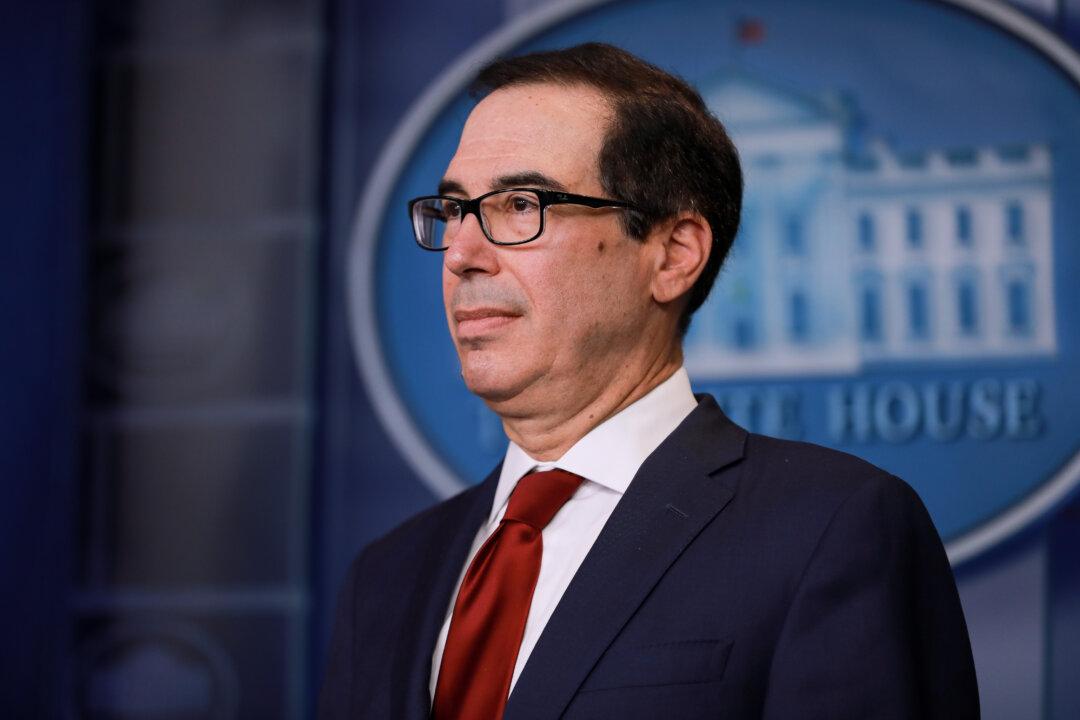Treasury Secretary Steven Mnuchin says states encountering financial difficulties should take advantage of low-interest rates and borrow money to cover losses brought on by the pandemic.
Mnuchin said President Donald Trump and Republicans won’t support aid for states to cope with financial issues that are unrelated to the CCP (Chinese Communist Party) virus outbreak. He said those states should get a loan from the Federal Reserve.





